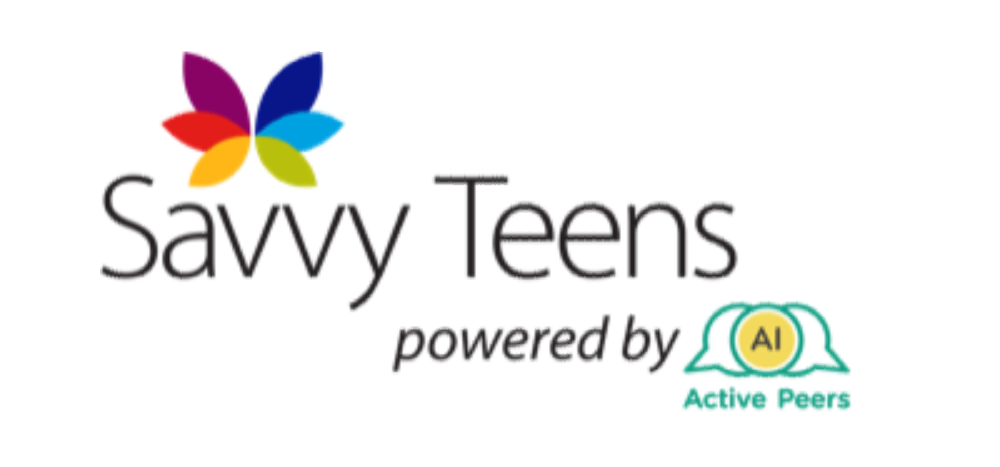5 Most In-Demand Career Skills in 2022
Do you have the 5 most in-demand career skills in 2022?
With the job market constantly evolving, some occupations lose popularity while others gain an edge. Although it is hard to say for sure which jobs would be in demand or be obsolete in the future, having certain essential skills can make all the difference in your career regardless of the field you are in. By having some of the most in-demand hard and soft skills in today’s job market, it can give you the competitive edge you need over your counterparts to ensure your path to success. According to Anderson (2020), “hard skills concern an employee’s ability to do a specific task, and soft skills are more about the way they do them — how they adapt, collaborate, solve problems, and make decisions”. In view of this, the following article will suggest 5 hard and soft skills to make yourself more desirable and marketable and to increase your chances of landing that perfect job.
The most sought-after hard skills include specialized knowledge and technical abilities in the following 2 aspects: cloud and distributed computing, and data analysis (Anderson, 2020; FutureLearn, 2020).
Cloud and Distributed Computing
This particular skill is in demand because employers want employees “who can deliver and manage resources via the internet and a communication network” (Business News Daily, 2020). Due to the increased demand for accessing readily available information, the development of cloud and distributed computing has spurred to allow individuals and businesses to use “remote network servers to store, process, and manage data all over the Internet” (Collabera, 2020). Being an integral part of the IT infrastructure for many companies around the world, employers want individuals who can seamlessly implement a cloud environment into their infrastructure (Dsouza, 2018). Moreover, to overcome the constraints of traditional software and hardware licensing models, businesses are looking for employees who are capable of delivering services to customers via the Internet using cloud computing (DeZyre, 2021). On the other hand, employers are also looking for individuals to operate distributed computing which is a system that solves one single problem by breaking it down into several tasks where one individual computer solves one task (DeZyre, 2021). Companies want employees who can “add and change software and computational power according to the demands and needs of the business” (Dsouza, 2018). Thus, cloud and distributed computing is a highly valued skill as it can help organizations to not only reduce risks but also costs (DeZyre, 2011).
Data Analysis
Living in an age of big data, data is now being harvested at a big scale that has never been seen before (FutureLearn, 2020). It is “used for everything from improving industrial processes to keeping shelves stacked to accurately targeting digital ads” (FutureLearn, 2020). It is no wonder that the World Economic Forum predicts data to be one of the key drivers of economic growth in the near future (FutureLearn, 2020). Accordingly, research has found that “those who are able to organize data collection, interpret the results, and make decisions based on these findings will be in high demand” (FutureLearn, 2020). Although one might assume that data analysis is only relevant in professions like business analysis and data science, it is in fact a skill required across all professions. Various professions across different fields, such as farmers and doctors, would need to make use of data in order to make the best possible decision (FutureLearn, 2020). However, as of right now, studies have found that there is a skills gap in terms of data literacy (FutureLearn, 2020). Accenture and Qlik’s research have found that over 74% of the employees would prefer not to work with data and this causes companies to “lose 43% of productivity per employee due to a lack of data literacy every year” (FutureLearn, 2020). In light of this, PricewaterhouseCoopers has predicted that almost 70% of employers will demand data literacy for their employees by 2021 (FutureLearn, 2020). Therefore, it is advisable to gain some data analysis skills to boost your employability in the current and future job markets.
On the other hand, the most in-demand soft skills demonstrating an employee’s personal traits and cognitive skills are critical thinking, emotional intelligence, and cultural awareness (Anderson, 2020).
Critical Thinking
According to Guerrouj (2020), “critical thinking skills are mental processes we use to analyse facts to form a judgement”. These thinking skills could involve problem-solving, decision making, categorization of information and objective analysis among many others (Guerrouj, 2020). Contrary to the popular belief, critical thinking is in fact not an automatic thought process as we are inherently programmed to think “uncritically”, making decisions subjectively based on our personal biases, self-interest or emotions (Mendes, 2020). As a result, one needs critical thinking skills to be able to make impactful decisions in the workplace by thinking critically (Guerrouj, 2020). There are a lot of ways critical thinking skills can be adapted to address the needs of the ever-changing modern workplace. For instance, as creativity is emphasised in a lot of workplaces, “a person with critical thinking skills can come up with innovative ideas and solutions to complex problems using logic and reason” (Guerrouj, 2020). To solve problems in a workplace, one could also first observe a situation, list the pros and cons and then decide on the best solution to deal with the problem (Guerrouj, 2020). It is also predicted for employees with critical thinking skills to be assigned the task of dividing teams and tasks between humans and machines in the future workplace (Guerrouj, 2020). As critical thinking skills often come in all sizes and shapes, your university degree can already give you some experience in dealing with certain types of information depending on the subject you are studying (Guerrouj, 2020). For instance, students studying English Literature often have to “read texts critically to form a qualitative argument or analyse the reliability of sources” whereas Engineering students have to “use the quantitative results from models to further their experiments or research projects” (Guerrouj, 2020). Therefore, depending on your education, you might already possess certain critical thinking skills. However, if you are aiming at a certain position in your workplace, then you would need to acquire the critical thinking skills needed for that particular profession. For example, a manager would need to use critical thinking skills to “foster teams that are intentional about accessing problems and devising problems” (Guerrouj, 2020).
Emotional Intelligence
Emotional intelligence, also known as emotional quotient (EQ), refers to the “ability to know, handle, and fully understand your emotions, including that of other individuals around you” (Siragusa, 2019). Leaders with high emotional intelligence are often aware of how their positive or negative emotions could affect other employees (Siragusa, 2019). Being one of the most frequently referenced skills in the current and future job markets, high emotional intelligence could be seen as one of the most “reliable predictors of career success and salary levels” (Siragusa, 2019). To cultivate emotional intelligence, one needs to be empathetic (Siragusa, 2019). One should not only possess the capacity to understand their own feelings but also those of others as it often impacts one’s actions and decision-making (Siragusa, 2019). One should “show humility in giving and receiving feedback, are reliable and committed to helping others, and willing to apologise and to forgive when necessary” (Siragusa, 2019). These qualities can help one work well in collaborative environments, reduce stress and get the best results from all the stakeholders (Siragusa, 2019). In fact, the way people view work itself is changing (Jenkins, 2020). As Gen Z has the highest prevalence of mental illnesses and feelings of loneliness compared to other age groups, companies need to adapt to the emotional needs of their younger employees (Jenkins, 2020). Considering the youth is the future, acknowledging the importance of their employees’ mental wellbeing is crucial for all employers (Jenkins, 2020).
Cultural Awareness
As workplaces become more diverse, cultivating cultural awareness should be a top priority for companies all over the world (Landry, 2018). Since cultural awareness affects “how teams collaborate and interact, and makes for a more inclusive, productive environment”, all employees are expected to have cultural diversity skills and cultural intelligence (Landry, 2018). Landry (2018) recommends “unpacking the different layers and nuances of culture” to cultivate awareness to understand not only “the role you play in your organisation, but also the role your team members and organization plays to the world”. Goodman (2018) also suggests to “understand one’s self and how one needs to adjust to the environment and ecosystem that he or she is in” to become more culturally aware (as cited in Landry, 2018). Since all individuals have the tendency to form stereotypes, whether it is based on one’s past experiences or one’s own set of beliefs, uncovering those stereotypes and acknowledging one’s bias can help them become “a stronger, more effective communicator and employee” (Landry, 2018). At the same time, it is also valuable for a leader to “understand, respect, and work harmoniously with people of a different race, culture, age, gender, language or sexual orientation” (Landry, 2018). Adapting to others with different perceptions of viewing the world can not only promote teamwork in an organization but can also help employees and employers to come up with ideas that drive new products or services in today’s globalised world (Landry, 2018).
References
Anderson, B. (2020, January 9). The Most In-Demand Hard and Soft Skills of 2020.
Business News Daily. (2020, May 5). What Employers Want: 38 In-Demand Skills.
https://www.businessnewsdaily.com/5686-the-most-in-demand-career-skills.html
Collabera. (2020). Will Cloud Computing Change IT Jobs? How will Cloud Computing Affect IT Jobs?
DeZyre. (2021, January 25). Cloud Computing vs. Distributed Computing.
https://www.dezyre.com/article/cloud-computing-vs-distributed-computing/94
Dsouza, M. (2018, November 7). What is Distributed Computing and What’s Driving Its
Adoption. https://hub.packtpub.com/what-is-distributed-computing-and-whats-driving-its-adoption/
FutureLearn. (2020, June 15). 7 Skills Employers of the Future will be Looking For.
https://www.futurelearn.com/info/blog/careers/7-skills-employers-of-the-future-will-be-looking-for
Guerrouj, L. (2020, July 7). Critical Thinking Skills for the Future of Work. Salesforce.
https://www.salesforce.com/eu/blog/2020/07/critical-thinking-skills-future-work.html#:~:text=A%20person%20with%20critical%20thinking,problems%20using%20logic%20and%20reason.&text=In%20the%20future%20workplace%2C%20people,tasks%20between%20humans%20and%20machines
Jenkins, R. (2020, July 13). 5 Reasons Why Emotional Intelligence is the Future of Work.
Entrepreneur. https://www.entrepreneur.com/article/352884
Landry, L. (2018, January 18). The Importance of Cultivating Cultural Awareness at Work.
Northeastern University. https://www.northeastern.edu/graduate/blog/cultural-awareness-at-work/
Mendes, J. (2020). Why Critical Thinking Skills are Important in the Workplace.
20is,simplistic%20thinking%E2%80%94it’s%20human%20nature
Siragusa, T. (2019, October 23). How Emotional Intelligence Can Shape the Future of Work.












